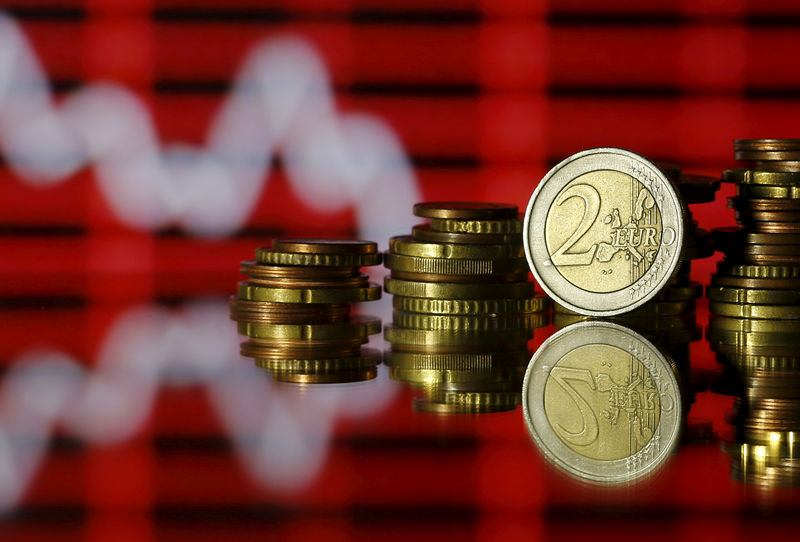By Geoffrey Smith
Investing.com -- The Eurozone economy was less dynamic than first thought in March, although it still likely grew at the fastest rate in 10 months, according to a closely watched business survey released on Wednesday.
S&P Global's composite purchasing managers index for the Eurozone rose to 53.7 from 52.0 in February, its highest level since May last year. However, that was slightly lower than the preliminary estimate of 54.1 released last week.
"Manufacturing production picked up slightly, but it was the service sector that had the strongest influence on March's accelerated upturn," S&P Global said in a statement.
S&P's survey had mixed news for the European Central Bank, which is still grappling with stubbornly high inflation. While factory gate price eased, owing to the moderation of energy prices, service sector inflation stayed strong, with S&P's respondents saying that operating costs had risen sharply again "amid reports of higher wage demands."
S&P noted that the region's two largest economies, Germany and France, were lagging behind the rest of the region. Their composite PMIs came in at 52.6 and 52.7, respectively, well below Italy's 55.2 and an eye-catching 59.4 reading for Spain's dominant service sector.
Both Germany and France had been affected by widespread strike action during the month, driven by pay demands in Germany and protests against President Emmanuel Macron's pension reforms in France.
There had been better news earlier on Wednesday from Germany, which announced a 4.8% increase in manufacturing orders in February, the biggest monthly rise in a year and a half. French industrial production for February also came in ahead of expectations, up 1.2% on the month.
"In total then, the PMIs are telling a story of an economy with a domestic services sector that is now stretching its legs after having been held back by an inflation shock," Pantheon Macroeconomics' Claus Vistesen said. "It doesn't get much better than that."
He added, however, that this is unlikely to continue, as he expects a tightening of credit standards in response to last month's bank collapses to take an increasing toll on the economy over the next two quarters.
The euro, which had hit a two-month high on Tuesday after weak U.S. labor market data, edged down 0.1% to $1.0944 in response.
